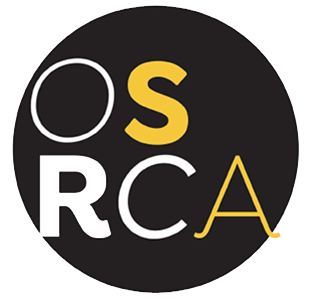
Writing Tips and Resources
Tips for Clearer Writing
Before you submit your paper to Oshkosh Scholar, be sure to edit and proofread it carefully. Below are some common writing issues to look out for.
Use Specific Pronouns
Simple pronouns can cause confusion among readers. Be specific when you write this, that, these, those. Write, “This experiment,” or “those formulas” to remove ambiguity.
Use First Person
Change sentences from, “The experimenters discussed the effects of the . . .” to “We discussed. . . .” In this case “we” refers to you and your coauthors only; any use of “we” beyond that meaning causes ambiguity. Use “I” if you are the author.
Be Aware of Passive Voice
Using the passive voice rather than the active is not grammatically wrong. However, it is important to be aware of the distinction because sometimes eliminating the passive voice can help eliminate ambiguity and wordiness.
A simplified explanation of the passive vs. active voice is that in a sentence with active voice, the subject is performing the action in the sentence. For example, the following is an active sentence: “We completed the experiment in a lab.” The subject (“we”) is performing the action (“completed”). By contrast, the following sentence is passive: “The experiment was completed in a lab.” The subject (“the experiment”) is not performing the action, but rather is being acted upon.
Sometimes the passive voice is necessary to convey the appropriate meaning, e.g., when you want to focus on the recipient of the action. The following sentence is active: “John Smith shot the president.” However, if you want to focus on who was shot rather than who did the shooting, you could change the sentence to passive voice: “The president was shot.”
For more information on the passive voice, see the Purdue University Writing Lab and UW–Madison Writing Center websites.
Avoid Undefined Jargon
Define terms. You know what you’re talking about, but would someone in a different field understand your article? Keep this in mind when you’re using terms that are specific to your discipline.
Eliminate Wordiness
Don’t use three words to state what could be said in one. Here are a few examples of wordy phrases:
| Don’t Say | Say: |
|---|---|
| based on the fact that | because |
| there were several students who answered | several students answered |
| in order to | to |
Avoid Redundancy
Don’t use extra words to emphasize your point. Just say what you mean. For example, instead of “both alike” use “alike.” Instead of “absolutely essential” use “essential.” Instead of “large in size” use “large.”
Need more writing help?
Visit the UW Oshkosh Writing Center
Located in the Student Success Center, 729 Elmwood Avenue, Suite 102
wcenter@uwosh.edu / uwosh.edu/wcenter
(920) 424-1152
All UW Oshkosh students are eligible for one-to-one conferencing at the Writing Center. Free, confidential tutoring is designed to help students work through assignments and gain additional writing skills. Trained peer consultants can assist students at any stage of the composition process, from brainstorming for topics to fine-tuning a final draft. They will assist students with issues like grammar and mechanics not by marking up the paper, but by helping students identify patterns of error and helping them learn how to avoid those errors. The Writing Center now offers e-mail tutoring to online and distance education students.
More information can be found at uwosh.edu/wcenter.

